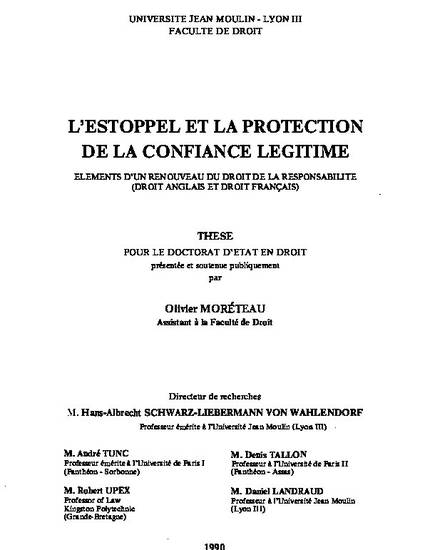
When studied in its historical dimension, the English doctrine of estoppel does not anymore appear like a rule of evidence but like a rule of substantive law. It precludes a person from denying a representation he has made whenever another person has been detrimentally relying on the truth of this representation. Estoppel can then be featured as a key concept taking place at the core of the law of obligations, together with the notions of tort, contract, and restitution. Within this province of the law, judges protect the reliance of parties reasonably acting on the faith of other parties’ conduct or statements. A comparative study of how estoppels and their functional equivalents in civil law jurisdictions, primarily French law, are applied, in relation to torts, contracts, and restitution, reveals how much it is important to consider liability from the obligee’s standpoint, a point of view too often concealed by the emphasis traditionally put on the obligor’s act or assent.
Available at: http://works.bepress.com/olivier_moreteau/13/
